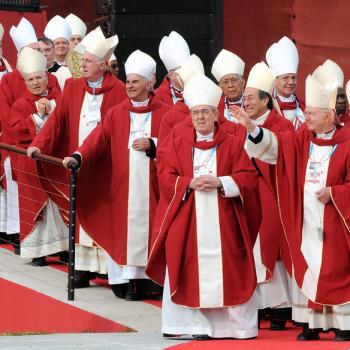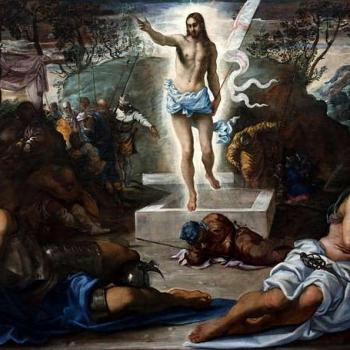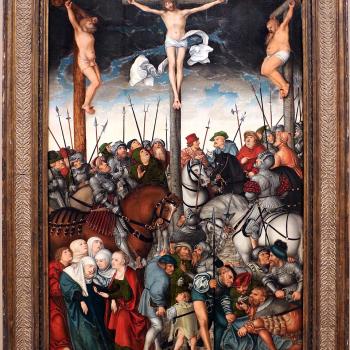Where the Word was operational, for O’Connor, it was always disruptive: in its presence, one’s head was supposed to explode. Her short stories, especially, reengineered the Joycean epiphany, the quiet moment of transcendence, as a kind of blunt-force baptismal intervention: her characters are KO’d, dismantled, with a violence that would be absurdist, if the universe were absurd. But the universe is not absurd. “There is an interaction between man and God which to disregard is an act of insolence,” wrote the rabbi and theologian Abraham Joshua Heschel, her contemporary, in The Prophets. “Isolation is a fairy tale.” The upended moment, the breaking-in or breaking-through of a vagrant, unbiddable reality: this is the grace of God and the sign of his love. . . .
This month FSG publishes A Prayer Journal, the contents of a devotional notebook that O’Connor—a turbocharged Catholic—kept from January 1946 to September 1947, while she was a student at the Iowa Writers’ Workshop. It is a miraculous and rather terrifying document, both a blueprint for her fiction and a prophetic dreaming-out of her life’s purpose and pattern: letters to God, basically, from a woman in her early 20s who would later tell a correspondent that she was a Catholic, “not like someone else would be a Baptist or a Methodist, but like someone else would be an atheist.”
Iowa was where spiky, brainy Mary Flannery O’Connor from Milledgeville, Georgia, became Flannery O’Connor, writer. Arriving in 1945 as a postgraduate student at the University of Iowa, she promptly homed in on the creative-writing classes run by the poet Paul Engle. Women were a minority at the time: by 1946, more than half of Engle’s pupils were returning servicemen, many of them writing stories about their experiences during the war. On the surface, as O’Connor’s biographer, Brad Gooch, tells it in Flannery, she was a quiet but significant classroom presence: “She scared the boys to death with her irony,” remembered one visiting lecturer, Andrew Lytle. Beneath the surface, as recorded on the 47 and a half handwritten pages to which we now have access (A Prayer Journal includes a facsimile), she was refining her vocation with the muscularity and spiritual ferocity of a young saint-in-waiting. . . .
“Smash the ego,” wrote Peter Schjeldahl in a 1979 poem called “I Missed Punk,” “which always reconstitutes / (and if it doesn’t, well, / your worries are over).” For O’Connor, the space left by the destroyed ego—we can imagine it as a kind of humming vacancy, drifting with pieces of burned paper—was holy because it belonged to God. And she wanted it. Or, more precisely, and more poignantly, she wanted to want it. “Dear Lord, please make me want You. It would be the greatest bliss … to have the want driving in me, to have it like a cancer in me. It would kill me like a cancer and that would be the Fulfilment.” Electric with literary ambition, she prays to be erased. A paradox? Hardly. “Don’t let me ever think, dear God,” she pleads, “that I was anything but the instrument for Your story.”. . .
The boys in the classroom were right to be scared of her irony. O’Connor’s was not the shifty, reactive, and merely local variety that passes for irony today: sitcom irony, skinny-jeans irony. It was vertical and biblical: the irony by which the mighty are lowered, the humble exalted, and the savior dies on a cross. And she would shortly be required to submit to it herself, in full. Within three years of leaving Iowa, where she had prayed for desire of the Lord to claim her like a disease, she was diagnosed with lupus. Stricken, she returned to her mother’s farm in Milledgeville, her base of production for the novels Wise Blood and The Violent Bear It Away, and the short-story collections A Good Man Is Hard to Find and Everything That Rises Must Converge, the latter published posthumously. Health and sex and adventure had been taken from her, and in their place was a vision, her world, blast-lit and still reeling under the first shock of creation. “The air was so quiet,” she wrote in “The River,” “he could hear the broken pieces of the sun knocking in the water.” It was a gift. And we are left with a question: Without this terrible narrowing-down, would she have achieved the greatness she prayed for? This illness, this thing that confined her, that hauled her, crutches clanking, into a premature spinsterhood, and finally killed her at the age of 39, can we call it by the name of grace? Dare we?












